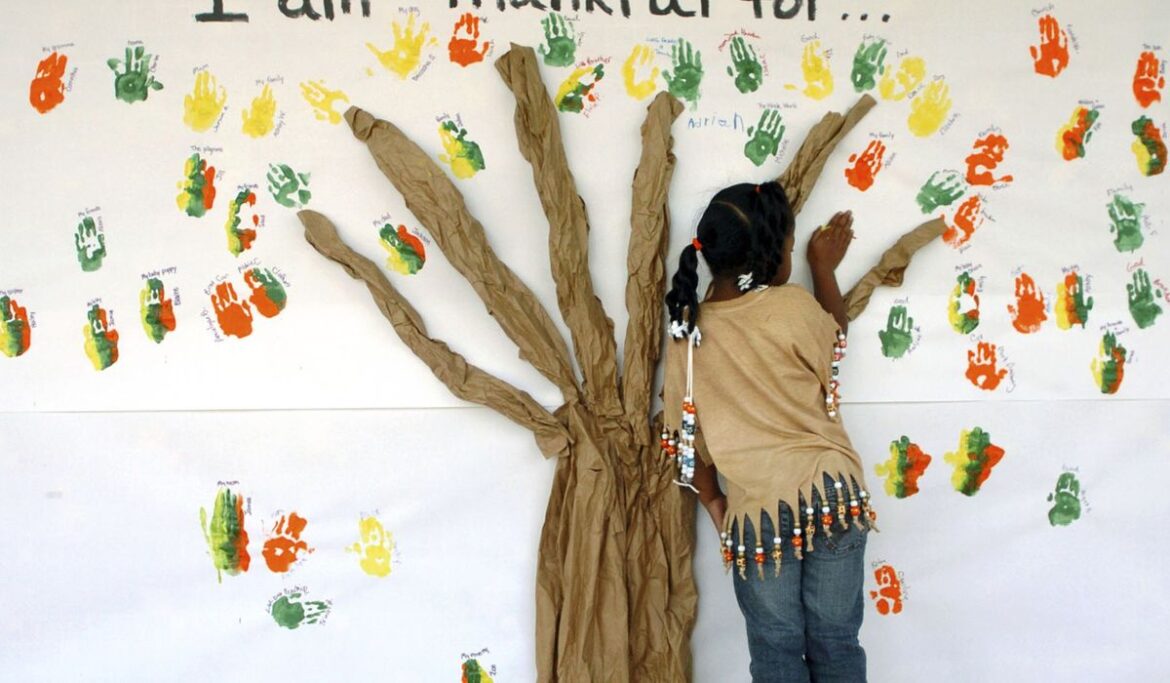OPINION:
Dear Mama Bears, I grew up with our family focusing on gratitude during the holidays, but I keep hearing people say that we shouldn’t “force” our kids into gratitude because it’s toxic. How can gratitude be toxic? Is it really true that we shouldn’t “force” our kids to talk about what they are grateful for? – NONTOXIC MAMA
Dear Nontoxic Mama: Ah, yes. “Toxic gratitude.” I’ve heard that phrase too. (Our Mama Bear Alexa and I recently cowrote a blog on it.)
Subscribe to have The Washington Times’ Higher Ground delivered to your inbox every Sunday.
Society loves taking the word “toxic” and putting it in front of anything and everything to make a good thing sound bad. Toxic faith, toxic masculinity, and now toxic gratitude. To quote Regina from “Mean Girls,” “Stop trying to make ‘fetch’ happen. It’s not going to happen.’”
Just because someone slaps the word “toxic” on something does not make it a real thing. Granted, anything can be misused and a misued thing can be toxic. That doesn’t make the thing itself toxic, though. (If anything, it means that the people using the phrase “toxic [insert good thing here]” don’t understand what [good thing] is in the first place.)
So let’s unpack what people mean when they say “toxic gratitude.”
We’ve all known people who can’t handle negative emotions. Express anything but happy-clappy puppies sliding down rainbows, and they’ll “encourage” you to turn that frown upside down. Look on the sunny side! Just be grateful, dangit!
That kind of mentality can be toxic. It shuffles away a person’s pain and demands that they just act happy. Being grateful is not the same thing as being happy (although gratitude can lead to happiness.) Pushing our hurt, pain, or disappointment down and pretending it doesn’t exist is like “doing the dishes” by hiding them under the bed. You have not solved the problem. You’ve just created a growing, stinking, cesspool just waiting to explode into nastiness.
True gratitude involves identifying things around you that you are genuinely thankful for. No matter what we are going through, there is always something to be grateful for. Learning to identify those things, even if you are grieving, is an incredibly healthy practice.
In fact, research shows that regularly practicing gratitude correlates with a variety of positive outcomes, from emotional regulation, decreased depression (see here too), lowering heartrate, and even increasing the likelihood that participants would help out a fellow participant. And this isn’t all anecdotal – fMRI studies show that gratitude is positively correlated with increased activity in the brain centers corresponding to moral cognition and value judgements.
Our advice?
Don’t stop at the holidays! Make gratitude a regular part of your family DNA. Kids are complaining? Before you’ll hear it, they must list three things they are thankful for, for every one complaint. Each night at dinner (or before bed), have each family member list one specific thing that they are most grateful for that day. (My husband and I started doing this a few years ago. It’s amazing the way it has changed our outlook!) Kids not getting along? Make them sit down and make a list of the 10 best things that they love about their sibling. No backhanded compliments allowed! (i.e. I’m thankful that you’re not dumber than you are.)
So toxic gratitude? That’s dumb. True gratitude is never toxic. The best part about practicing gratitude regularly is that the more you identify the things you are grateful for, the more you will notice things in your life to be grateful for! You’ll be surprised at the impact it has on your family life. Gratitude really is the gift that keeps on giving.
–
Hillary Morgan Ferrer is Founder and President of Mama Bear Apologetics and coauthor if the bestselling books “Mama Bear Apologetics: Empowering Your Kids to Challenge Cultural Lies” and “Mama Bear Apologetics’ Guide to Sexuality.” She has degrees in both film and biology and spends her time as an author, speaker, teacher, and apologist encouraging others to discern culture from a biblical worldview


